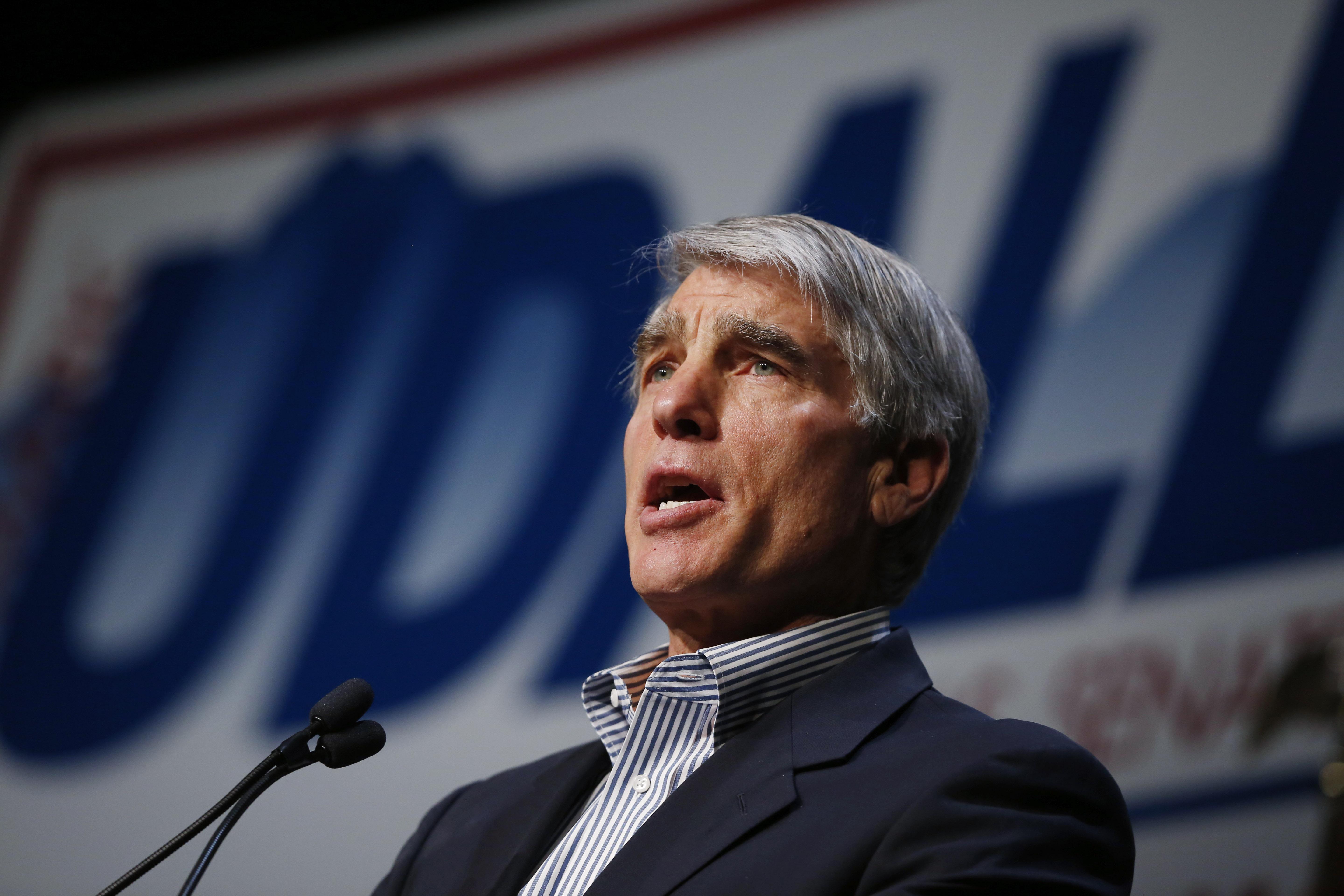 When U.S. Sen. Mark Udall aired the first television ad of his re-election campaign in April, the spot did not list his accomplishments, or otherwise argue why voters should send him back to Washington for a second term. Instead, it went after his challenger, Republican Rep. Cory Gardner, on his opposition to abortion rights.
When U.S. Sen. Mark Udall aired the first television ad of his re-election campaign in April, the spot did not list his accomplishments, or otherwise argue why voters should send him back to Washington for a second term. Instead, it went after his challenger, Republican Rep. Cory Gardner, on his opposition to abortion rights.
Six months later, Udall and his allies are still filling the airwaves with ads hammering Gardner on abortion, hoping to use the issue — once thought by Democrats to be a wash politically — to win this swing state for the third consecutive election cycle.
More: Election 2014 coverage | Voters guides
It's the most prominent example of how, from Alaska to Florida, reproductive rights have taken center stage in Democratic campaigns, a stark shift from the days when abortion issues were often used to rally the party's base but rarely discussed in front of those who might end up voting for either candidate.
National trend
The shift comes after the Republican wave of 2010 put the GOP in the majority in the U.S. House and inspired 39 states last year to pass laws restricting access to abortion. It also comes amid the rise of "personhood" proposals in some states that would grant legal rights to a fertilized egg, which could outlaw almost all abortions and, even more explosively, some forms of birth control.
Many abortion opponents say they do not intend to target birth control. But the very mention of contraception in the abortion debate has become volatile, said Laura Chapin, a Democratic strategist in Colorado.
"If Republicans had stuck to abortion, the argument would not have changed," Chapin said, "but when they got taken over by the religious right and went after something we use on a daily basis, the dynamics changed."
Democrats in Iowa, Michigan and North Carolina also are attacking their Republican opponents for supporting personhood proposals. In Alaska, supporters of Democratic Sen. Mark Begich are running an ad knocking his Republican challenger for opposing abortion rights.
Even Republican-turned-Democrat Charlie Crist in Florida, who once opposed abortion rights, has aired an ad hitting Gov. Rick Scott on his opposition to abortion.
Polls are mixed on political support for abortion rights and have shown that men and women have similar views. But Jennifer Lawless, director of the Women & Policy Institute at American University, said unmarried women, who overwhelmingly vote Democratic, are more likely to be concerned about reproductive rights. Plus, she noted that Democrats are linking abortion to broader gender issues such as pay equity that helped President Barack Obama win the women's vote nationally by 18 percentage points in 2012.
"It's a safer strategy this time around because we've seen the language and tenor work in previous election cycles," Lawless said.
In no state has the issue of reproductive rights dominated the debate as in Colorado. Democrats pioneered the strategy in 2010, when Sen. Michael Bennet eked out a narrow victory after attacking his Republican challenger as anti-women and anti-abortion rights. Obama's re-election campaign emphasized reproductive rights in Colorado in 2012. He won the state handily.
In some deeply religious states like Louisiana and Arkansas, Democratic Senate candidates rarely discuss reproductive rights. But Colorado was the first state to decriminalize abortion in the pre-Roe v. Wade days, and about 100,000 pro-abortion rights women who live in the Denver suburbs routinely decide elections in the state.
Gardner pushes back
 In Colorado, Gardner is trying to confront the Democrats' push.
In Colorado, Gardner is trying to confront the Democrats' push.
"Mark Udall has failed on energy, on the economy. He's failed on health care, so of course he wants to talk about something else," Gardner said in a brief interview last week.
Gardner kicked off his campaign by disavowing a state personhood measure that he previously backed, saying he did not want to ban birth control — though Democrats note he remains a co-sponsor of a similar federal measure in Congress. He proposed allowing birth control pills to be sold over the counter — and Democrats hit back, noting that would raise the cost to most consumers. GOP operative Karl Rove's group Crossroads GPS recently ran an ad featuring four frustrated-sounding middle-aged women saying, "We aren't single-issue voters" before slamming Udall for supporting Obama. In a new ad his campaign released this week, Gardner said Udall "won't talk about anything else."
Ilyse Hogue, president of NARAL, suggested in an interview that Republicans are foolish to dismiss reproductive rights as a "single issue."
"This isn't about abortion at all," Hogue said. "It's about a worldview on women's rights that people think is superseded by a fertilized egg."
Katy Atkinson, a GOP consultant in Denver who has pushed for her party to broaden its appeal to female voters, said she thinks Udall has erred by relentlessly emphasizing the issue. The race has remained largely deadlocked in public polling since the senator's attacks began in April. "It doesn't resonate with the public the way it once did," Atkinson said.
That's certainly true for Stephanie Greenberg, 30, an independent voter in the swing suburb of Centennial who supports abortion rights but is tired of hearing arguments about birth control.
"They're harping on birth control and women's rights too much," she said.









